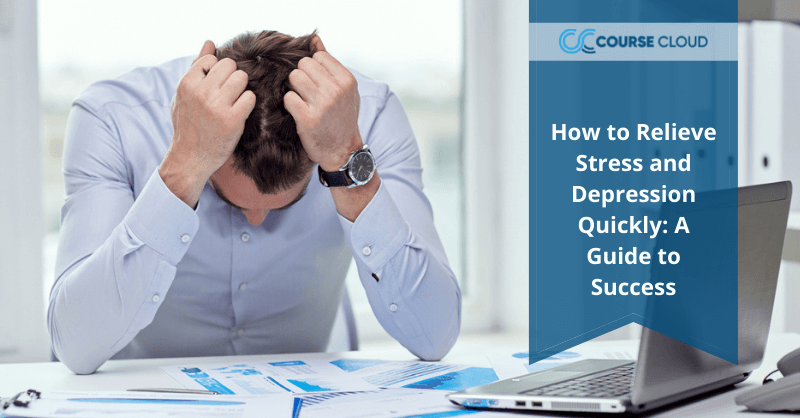
Do you find it challenging to perform daily tasks, lose interest in things you previously liked, or constantly feel down? Or maybe you are looking for how to relieve stress and depression without going to a doctor or specialist?
Well, these symptoms mentioned above are the common symptoms of stress and depression. Stress and depression both are mental disorders and can make you feel bad about yourself and think negatively. Read this blog to learn everything related to stress, depression and how to relieve stress and depression naturally.
Table of Contents
What is Stress?
To put it simply, stress is a feeling that indicates someone is under too much mental or emotional pressure. This feeling of excessive pressure can come from any daily life activity. For instance, increased workload, financial worries, or arguing with a family member or friends can lead to stress.
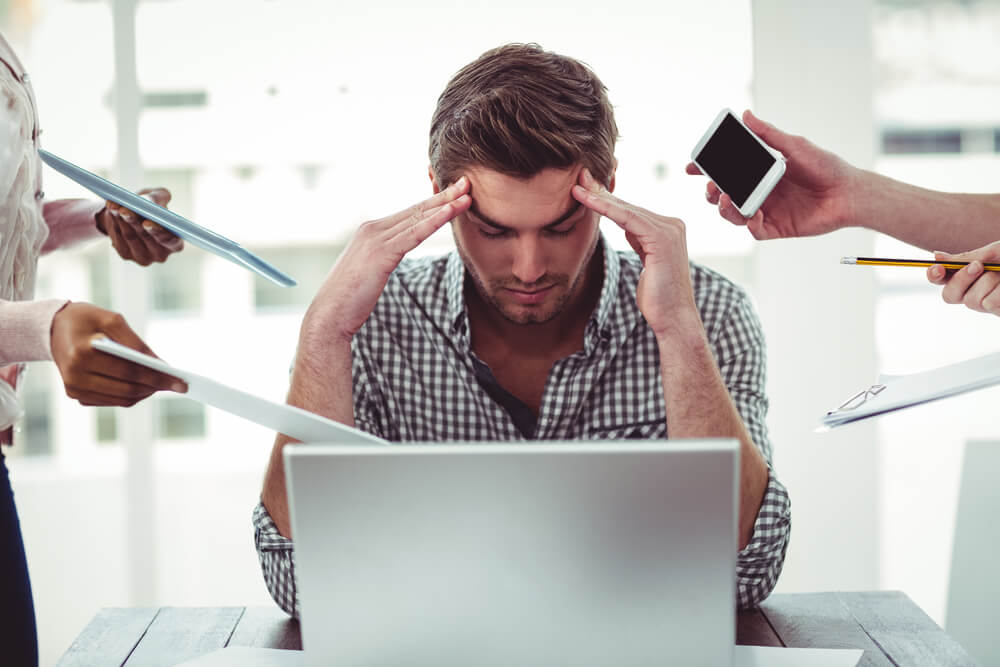
There are two types of stress, and these are acute stress and chronic stress. In acute anxiety, the effects are short-lasting and easily treatable. On the other hand, chronic stress is long-lasting and often leads to other health conditions.
How Long Does Stress Last?
Well, stress can be a short-term issue or a long-term problem. How long you may suffer from stress depends on what changes are going on in your life. Also, how good you are at managing stress. For instance, if your loved one dies, it’s natural to grieve and feel stressed. However, secluding yourself from everyone may lead to chronic stress and other mood disorders.
What are the Signs and Symptoms of Stress?
Stress is not an illness or a disorder; everyone feels stressed at some point in their life. The feeling of stress is normal, but it can develop into a disorder if it is left untreated. If you are stressed, you may feel threatened or upset, and your body goes into ‘fight or flight’ mode or creates a stress response. The signs or symptoms of stress are listed below:
What are the Causes of Stress?
Everyone’s stress triggers are different from others, and the intensity of the stress also varies from person to person. However, among the other stresses, work-related stresses are on top of the list. According to research, forty percent of workers admit that they suffer from work stress.

The following feeling or activities can trigger stress:
- Chronic illness or injury
- Long working hours
- Heavy workload
- Unhappy at your job position
- Increased financial obligation
- Traumatic events such as being involved in an accident or death of a loved one
- Marriage separation
- Custody dispute etc.
What are the Effects of Stress on Your Body?
As mentioned above, the effects of stress on your health can be acute or chronic. When a person is in a stressful situation, their body launches a physical response. First, your nervous system comes into action and releases hormones to handle the stress. After that, you either prepare to fight or take off, and it’s called the ‘fight or flight’ response. That’s why, when you are in a stressful situation, your hearts beat faster, your muscle tenses, breathe faster, and you start to sweat. These kinds of stress have an acute or short-term effect on your health. And your body will normally recover from these types of stress pretty quickly.
Although, if you leave stress unchecked for a long time, it could worsen or lead to more serious illness. For instance, stress often leads to depression, a severe mood disorder that can cause serious damage to your health. Other illness or disorder caused by stress includes:
- High blood pressure
- Abnormal heartbeat (arrhythmia)
- Hardening of the arteries (atherosclerosis)
- Heart disease
- Heart attack
- Heartburn, ulcers, irritable bowel syndrome
- Upset stomach – cramps, constipation, and diarrhoea
- Weight gain or loss
- Changes in sex drive
- Fertility problems
- Flare-ups of asthma or arthritis
- Skin problems such as eczema and psoriasis.
As you can see that if the stresses are not properly addressed, it can lead to or cause severe health conditions. Therefore, you should take some steps to minimise the effects of stress on your health. Read on to learn about- how to relieve stress and depression naturally.
What is Depression?
Depression is a pervasive mood disorder that involves a persistent feeling of sadness and loss of interest. It is very different from the mood fluctuations that people generally experience as a part of their life. Depression can be caused by significant life events such as marriage separation or the loss of a job. Also, stress can lead to depression if the stresses are not addressed for a long time.
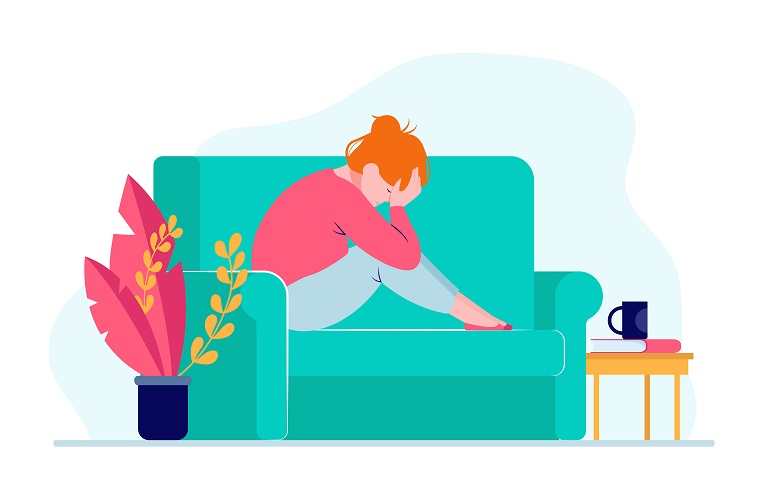
How Long Does Depression Last?
There is no exact average time that can help you give the precise duration of depression. Every depression case is different, and it also depends on the person’s capability to handle depression.
And that’s why an episode of depression may be shorter for some people. Although, if left untreated, it can become chronic or long-lasting and may take several months to recover. So, you must seek treatment as soon as possible if you are suffering from this mood disorder.
What are the Causes of Depression?
Anyone can develop depression, even a person who appears to live in a relatively ideal environment. Still, scientists have not been able to find the exact cause of depression. However, they were able to find out some factors that play a role in causing depression.

The factors that might play a role in depression are:
Genetics
Depression can be passed through genetics from one family member to another. For example, if a person’s parents or grandparents had depression, they are more likely to develop it.
Hormones
Hormonal changes or imbalances in our bodies can cause or trigger depression. For instance, many women can develop post-partum depression after giving birth.
Biological and Chemical Differences
Physical changes or chemical imbalances in our brain can contribute to the development of depression.
Trauma or Stress
Major life changes, periods of high stress, or traumatic events can trigger depression in some people.
Personality Traits
Being pessimistic or having low self-esteem, for instance, may increase the risk of developing this disease.
Other Illnesses
Having a history of other mental or physical health conditions can increase the risk of depression. Also, mental disorder medications can contribute to the development of the disease.
What are the Signs and Symptoms of Depression?
People with the signs and symptoms of depression often don’t know or accept that they have it. Depression is a mood disorder, so people who suffer from this illness often feel sad and lose interest in things they previously liked. There are several signs and symptoms of depression.
Read on to learn the signs of depression and find out if you or your loved one is suffering from depression. The common signs and symptoms of depression are listed below:
- Having a depressed mood or feeling sad
- Loss of interest or pleasure in activities once enjoyed
- Loss of sexual desire
- Sudden changes in appetite (too much or too little)
- Unintentional weight loss or gain
- Changes in sleeping pattern (too much or too little)
- Feeling of restlessness, agitation, and pacing up and down
- Loss of energy or fatigue
- Feelings of guilt or worthlessness
- Difficulty in concentrating, thinking, or making decisions
- Constant thoughts of death or suicide. Or, in extreme cases, suicide attempts.
Can Children Suffer from Depression?
Yes. Children can develop this illness, and their condition is often left undiagnosed and untreated. It is because their symptoms are often passed off as regular emotional and psychological changes.

What are the Signs and Symptoms of Depression in Children?
Depression in children is more difficult to detect because they often can’t articulate their symptoms. However, as parents, guardians, you can easily determine if they develop the diseases by closely looking at their behaviour. For example, it can make your children’s schoolwork and social activities very challenging. The other signs and symptoms of depression in children include:
- Social withdrawal
- Crankiness or anger
- Trouble concentrating
- Fatigue and low energy
- Continuous feelings of sadness and hopelessness
- Being more sensitive to rejection
- Changes in appetite
- Changes in sleep
- Vocal outbursts of crying
- Physical complaints that don’t respond to treatment
- Feelings of worthlessness or guilt
- Impaired thinking or concentration
- Thoughts of death or suicide
- Having trouble participating in events and activities at home or school.
What are the Effects of Depression on Your Body?
People from all over the world are suffering from depression. Depression is technically a brain disorder, but it also affects your physical health and well-being.
Also, depression often increases the risk of having other physical illnesses or conditions. So, if the disease is left untreated, it can seriously affect your whole body. Below is the list of diseases or illnesses that can be caused by depression.
- Feeling of sadness or emptiness
- Trouble with memory or decision
- Headaches
- Coronary artery disease
- Chronic pain
- Risk of having a heart attack
- Weight fluctuations
- Insomnia
- Feeling of clinginess
- Constricted blood vessels
- Increased pain sensitivity
- Fatigue
Loss of libido dyspareunia (lower interest in sex).
How to Relieve Stress and Depression Naturally?
Living with depression is very challenging, but taking proper treatment can improve your quality of life significantly. Also, overcoming this mental illness requires effort, time, and patience. Thus, you should know how to relieve stress and depression.
You can take some small but powerful steps towards both diseases to improve your condition. For example, when suffering from depression, making an effort towards mitigating the symptoms of depression will look like a meaningless effort. But taking these small steps or making small changes in your daily activity can brighten up your mood. Also, make you feel better for the time being, as well as improving your health.
Below are some tips on how to relieve stress and depression on your own:
1. Accept that you are Stressed or Depressed
The first step towards recovering from depression is accepting that you have developed this illness. Most people deny when it’s clear that they are depressed or stressed. Denial is in our nature. We usually deny to others when we are sick or not feeling good. We think that by accepting it, we are showing others our weak side. But, it’s the opposite.
Self-acceptance means that you are open to the fact that you have this condition, which needs to be treated. Also, you will be available to your loved ones and take help from them. So, start the healing process to recover from stress and depression by accepting that you are a victim of these illnesses.
2. Avoid Stress
It is scientifically proven that there is a strong connection between stress and depression. For people who developed the symptoms of depression, chances are many of them previously suffered from chronic stress. Stress can seriously affect your mental health, life satisfaction, and general health.
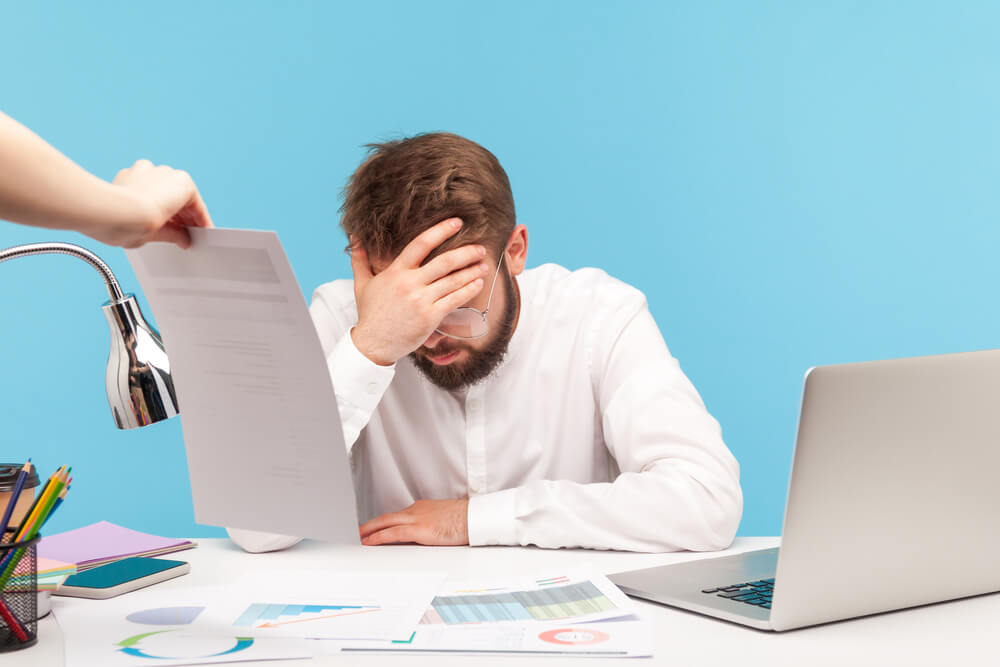
First, find out the stressors that make you feel stressed and work on them. Also, make some positive life changes. For instance, you can do the following –
- Exercise regularly
- Practice breathing exercises and meditation
- Try to get enough sleep and rest
- Learn how to say “no” to additional demands
- Take breaks from work when there is too much work pressure.
3. Get in a Routine
When you have developed the symptoms of stress or depression, you need a routine to do your daily activities. This is because when a person suffers from these mental diseases, they lose control over their life. Setting a daily schedule will help you to get back on track. So, prepare a daily routine if you are depressed.
4. Do Some Exercise
Exercise can help you in fighting back mental disorders such as anxiety, stress, and depression. When you exercise, your brain releases chemicals dopamine and serotonin, which will make you feel good. If you do exercise regularly, it can boost your self-esteem as well as keep you physically fit. Also, it will help you concentrate, sleep, look and feel better.
So, you should try to do some exercise for at least 30 minutes five days a week in a gym or your home. Or, you can do other activities you like for the same amount of time, such as walking or gardening. So, do some exercise and be active and fit physically and mentally.
5. Eat Healthy Food.
There is no magic diet that can fix depression. But there is a strong link between what you eat and how you feel. For instance, if you eat something sweet and delicious, your mood changes positively. Also, your diet can have a long-lasting effect on your mood or mental health.

A diet plan that is good for your physical health is also good for your mental health. Like other parts of your body, your brain needs a mixture of nutrients to stay healthy and function well. Therefore, it’s always an excellent idea to watch what you eat. However, if your condition tends to make you overeat, you can mitigate the effects by making a diet plan. Some healthy food items include:
- Different types of fruit and vegetables
- Dairy products
- Wholegrain bread or cereals
- Nuts and seeds
- Oily fish.
- Green tea
- Olive oil.
At the same time, you should limit your intake of the following:
- Red meat and meat products
- Trans fats
- Premade baked goods
- Sugary desserts and sodas
When suffering from mental illnesses such as stress and depression, you should eat three meals each day and drink plenty of water. And limit your intake of caffeine and caffeine-containing drinks. Take a course on Stress Management and Anxiety Relief to know more about healthy food and learn how to relieve stress and depression.
6. Learn to Say ‘No’
Sometimes saying ‘NO’ is good for you. For instance, if your team leader or manager asks you to take more work when you already have too much on your plate, you should respectfully say ‘NO.’ Because taking on more than you can do will leave you feeling stressed or overwhelmed.
Being selective about what you take on and saying ‘No’ to things can reduce your stress levels. So, say ‘NO’ when you feel overwhelmed or stressed.
7. Get Enough Sleep
Depression has a strong link with your sleep. People with depression often can’t sleep at night, and they stay awake all night. It’s a common symptom of depression. It can worsen your health.
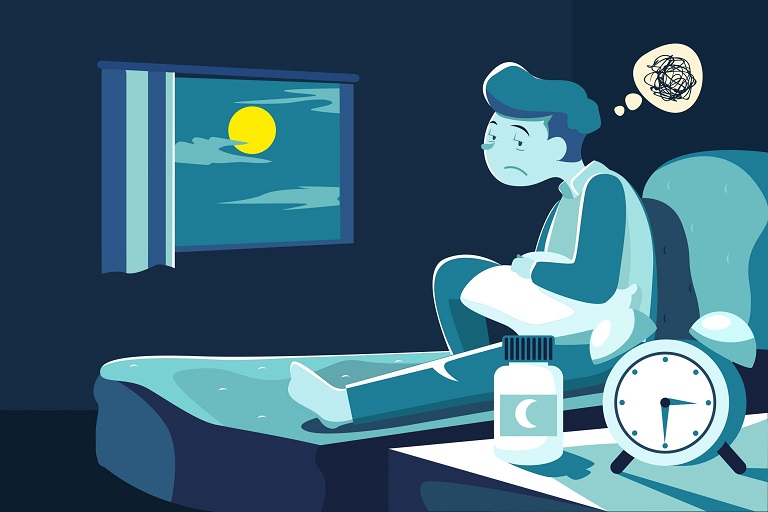
You can consider following the following tips to improve your sleep duration naturally.
- Go to bed and wake up at the same time every day, including weekends.
- Try to make sure that the room is quiet, dark, and has a comfortable temperature.
- Avoid large meals, fast food, caffeine, and alcohol before sleeping.
- Do some physical exercise during the day.
- Follow a healthful diet.
- Avoid using electronic devices 30 minutes before bedtime.
- Read a boring book if you fail to sleep and try again to sleep.
- Avoid drinking too much fluid before sleeping; otherwise, you have to wake up in the middle of the night.
8. Challenge Negative Thoughts and Try to Think Positive.
Depression doesn’t only make you feel bad, but also it can cause you to think more negatively. So often, you leap to the worst possible conclusions and become hopeless. Therefore, you can improve your mood by changing those negative thoughts.
Use logic instead of concluding when you feel that you feel bad about yourself. Of course, it will take both practice and time to challenge your negative thoughts. But you will be able to beat the negative thoughts before the condition worsens.
9. Limit Your Intake of Alcohol and Drug Use
When you have developed the symptoms of stress or depression, you should limit your use of recreational drugs and alcohol. This is because when you suffer from these mental disorders, some recreational drugs and alcohol can increase the risk of developing depression. Also, it can make your symptoms much worse.

Although you can occasionally drink alcohol in small amounts, it is perfectly healthy and enjoyable. A person can drink 14 units a week, and it will not affect their health condition. Therefore, you can drink sensibly and occasionally if you can abstain from heavy drinking.
According to research, many people who use drugs or alcohol are more prone to depression than those who don’t. So, if you use drugs or alcohol in an unhealthy way, you should limit your intake. Also, you should speak to a doctor or specialist about your condition to get the much-needed help.
10. Take Deep Breaths
When you feel stressed, your brain releases the stress hormone, and you experience symptoms such as quicker breathing, faster heartbeat, and constricted blood vessels. Deep breathing exercises can help you in activating your parasympathetic nervous system.
You will be surprised at the result of taking deep breaths once you are good at it. Follow these below four steps to improve or learn deep breathing:
1. First, sit in a comfortable position and keep your hands in your lap and your feet on the floor. Also, you can lie down on the floor instead of sitting.
2. After that, close your eyes.
3. Then, imagine yourself in a relaxing place.
4. Slowly take deep breaths in and then release it out.
You should continue taking deep breaths in and out for 5-10 minutes at a time. It will help you to feel more peaceful by slowing your heart rate. So, if you feel stressed, why not give it a try.
11. Spend Time with Friends and Family
People who develop the symptoms of depression often seclude themselves from their friends and family. So, whenever you have the time and opportunity, spend some time with your friends and family. Because they are excellent in giving support when you feel bad and help you get through social support. Also, they won’t judge you when you ask them for help.
12. Ask for Help
None of us is superhuman, and we can’t control everything that is happening in our life. Depression will make you think negatively, and you will feel bad about yourself. Spend time with your friends and family and ask them for help when you are in a low mood. Although, if you think that you are losing control of your situation, seek professional help.
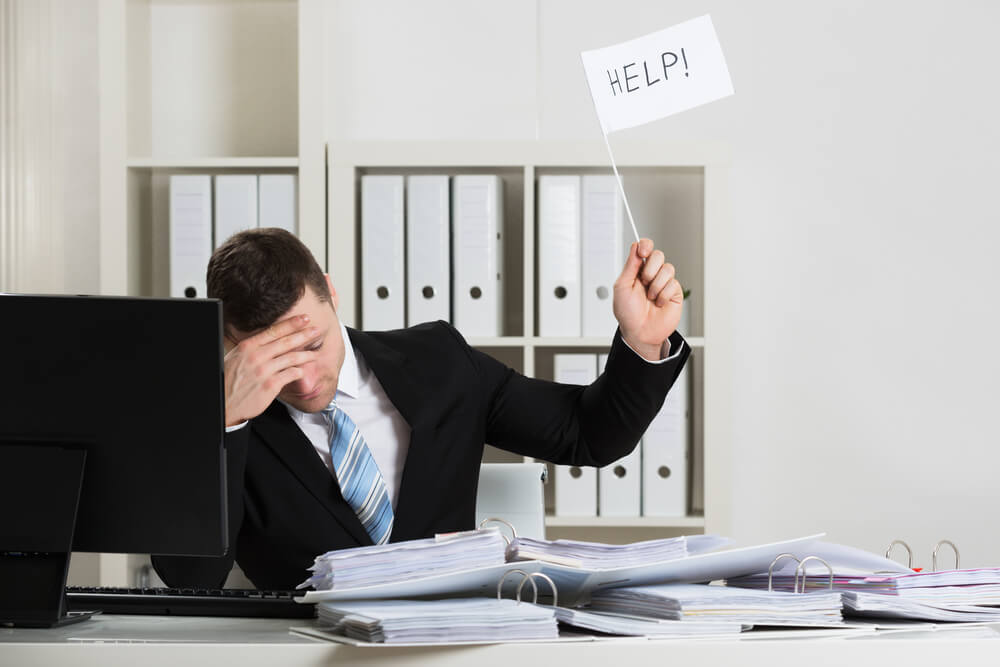
Closing Note
Your mental well-being is very crucial in performing daily tasks and staying healthy. Good mental health also indicates that your life is going well and can give the best at what you are doing. Developing the symptoms of a mental disorder will decrease your ability to do daily tasks efficiently. Also, stress and depression often lead to many other diseases. So, follow these tips mentioned above on how to relieve stress and depression to mitigate the effects of the conditions.Also, be aware of the symptoms of stress and depression; if necessary, attend webinars and online courses. And learn more about- how to relieve stress and depression from different professional bodies such as Course Cloud. We offer an online course on Stress Management and Anxiety Relief. This course will help you in managing your stress and depression on your own. Also, you will be able to provide help to your loved one if they suffer from stress and depression.



0 responses on "How to Relieve Stress and Depression Quickly: A Guide to Success"